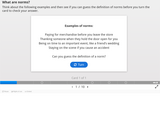
Note card on norms
- Subject:
- Career and Technical Education
- Criminal Justice
- Material Type:
- Interactive
- Provider:
- Michigan Virtual
- Date Added:
- 06/26/2019

Note card on norms
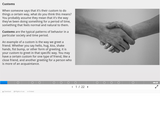
Video and audio slideshow on customs and laws
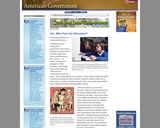
Public education is the single largest expenditure for state and local governments across the nation. Yet it is arguably the most criticized. Many people charge that public schools are faltering and that American academic achievements are far behind those in other countries. In recent years, many states and localities have experimented with improving public schools.
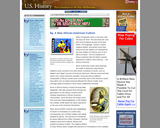
When immigrants reach a new land, their old ways die hard. This has been the case with most immigrant groups to the New World. The language, customs, values, religious beliefs, and artistic forms they bring across the Atlantic are reshaped by the new realities of America and, in turn, add to its fabric. The rich traditions of Africa combined with the British colonial experience created a new ethnicity the African American.
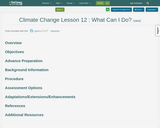
Students will review potential impacts of climate change on Michigan and determine both adaptive and individual mitigation strategies
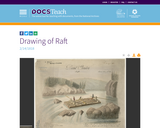
On February 14, 1818, David Gordon received a patent for his raft design. When a patent is granted, it excludes others from making, using, offering for sale, or selling the invention. This drawing accompanied Gordon’s application.
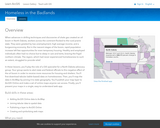
In these lessons, students play the role of a GIS specialist for a North Dakota advocacy group. The group wants to alert state and federal officials to this negative effect of the oil boom in order to receive more resources for housing and shelters. Students first download tabular (table-based) data on homelessness. Then, they map the data in ArcMap by joining it to state geography. They publish their map layer to ArcGIS Online and make a set of online maps anyone can access. Finally, students present their maps in a single, easy-to-understand web app.
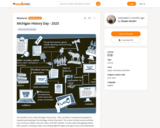
This Moodle course, titled 'Michigan History Day - 2025', provides a comprehensive guide for students participating in the Michigan History Day event. The course includes various activities such as forums, labels, resources, URLs, and H5P activities. It covers topics like getting started with research, choosing a topic, and creating different types of projects such as documentaries, exhibits, papers, performances, and websites. The course also provides checklists, evaluation forms, and examples to help students understand the requirements and expectations for each project category.
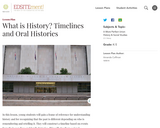
This lesson plan addresses the ways people learn about events from the past and discusses how historical accounts are influenced by the perspective of the person giving the account. To understand that history is made up of many people's stories of the past, students interview family members about the same event and compare the ifferent versions, construct a personal history timeline and connect it to larger historical events, and synthesize eyewitness testimony from different sources to create their own "official" account.